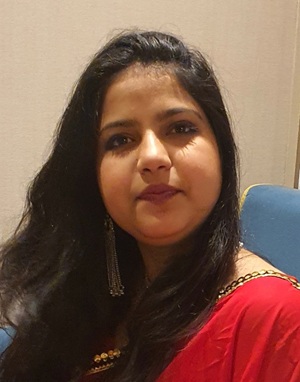So, Topics of Interest for Submission include, but are Not Limited to:
I. Arts & Aesthetics
- Contemporary Art Practices: New media art, performance art, socially engaged art, digital art, installation art, and their critical reception.
- Art History & Theory: Re-evaluations of art historical narratives, global art histories, and the philosophical underpinnings of aesthetics.
- Performing Arts: Dance, theatre, music, opera – their evolution, cultural significance, and adaptations in new technological contexts.
- Visual Culture: The study of images, visual media, and their role in shaping cultural understanding and social behavior.
- Film, Media & Screen Studies: Analysis of cinematic forms, television, digital media, and their cultural impact.
- Sound Studies & Acoustic Ecologies: The study of sound in culture, urban soundscapes, and the impact of technology on auditory experiences.
- Fashion, Design & Material Culture: The cultural significance of clothing, objects, and everyday aesthetics.
II. Literature & Narrative
- Literary Theory & Criticism: Current trends in literary analysis, hermeneutics, and the philosophy of language.
- Global Literatures: Comparative literary studies, world literature, postcolonial literature, and translation studies.
- Genre & Form: Exploration of traditional and emerging literary genres, narrative structures, and experimental forms.
- Literature and Society: The role of literature in social commentary, political discourse, identity formation, and historical representation.
- Digital Literature & Hypertext Narratives: The impact of digital platforms on literary creation, consumption, and interpretation.
- Creative Writing & Storytelling: The craft of writing, narrative techniques, and the cultural role of storytelling in various forms.
- Children's and Young Adult Literature: Its cultural significance, pedagogical implications, and evolving themes.
III. Heritage & Memory Studies
- Cultural Heritage Management & Preservation: Best practices in conservation, restoration, and sustainable management of tangible and intangible heritage.
- Digital Heritage: Laser scanning, 3D modeling, virtual and augmented reality for heritage documentation, preservation, interpretation, and access.
- Intangible Cultural Heritage: Safeguarding traditional knowledge, oral traditions, performing arts, social practices, rituals, and craftsmanship.
- Memory Studies: Collective memory, cultural memory, trauma and remembrance, the politics of commemoration, and the construction of historical narratives.
- Museum Studies & Curation: Evolution of museological practices, ethical debates in museum collections, decolonizing museums, and audience engagement.
- Archaeology & Material Culture: New archaeological discoveries, interpretation of material culture, and ethical issues in archaeological practice.
- Tourism and Heritage: Sustainable tourism, heritage tourism, and the economic and social impacts of heritage sites.
- Heritage and Conflict: Protection of cultural heritage in conflict zones, post-conflict reconstruction, and cultural diplomacy.
IV. Cultural Studies & Identity
- Cultural Identity & Belonging: National, regional, diasporic, and transnational identities in contemporary societies.
- Intersectionality: Examining how race, gender, sexuality, class, disability, religion, and other identities intersect in cultural production and reception.
- Gender & Sexuality Studies: Queer theory, feminist critiques, and the representation and experiences of diverse gender and sexual identities in arts and culture.
- Postcolonial & Decolonial Studies: Critiques of colonial legacies, decolonizing knowledge, and cultural resistance.
- Indigenous Cultures & Knowledge Systems: Recognition, preservation, and revitalization of indigenous arts, languages, and cultural practices.
- Popular Culture: Analysis of popular media, consumer culture, fandom, and their role in shaping societal values.
- Migration, Diaspora & Transnationalism: Cultural expressions of migration, displacement, and interconnectedness across borders.
- Cultural Policy & Funding: The role of government and non-governmental organizations in shaping cultural landscapes.
- Cultural Diplomacy & Soft Power: The use of arts and culture in international relations.
V. Technology & the Digital Sphere in Arts, Literature, Heritage & Culture
- Digital Humanities: Computational analysis of texts, digital archiving, network analysis, and data visualization in humanities research.
- AI in Creative Processes: AI-generated art, music, and literature; ethical and aesthetic implications of artificial intelligence as a creative agent.
- Blockchain & NFTs: Impact on art ownership, authenticity, intellectual property, and new economic models for creators.
- Social Media & Online Communities: How digital platforms shape cultural consumption, community formation, and public discourse around arts and heritage.
- Cyberculture & Digital Identities: The formation of identity in online spaces and the cultural implications of the digital age.
- Gamification & Interactive Narratives: Storytelling and artistic expression within digital games and interactive media.
- Open Access & Digital Publishing: Challenges and opportunities for disseminating scholarship and creative works.
VI. Education & Pedagogy in Arts, Literature, Heritage & Cultural Studies
- Teaching & Learning Methodologies: Innovative pedagogies for engaging students in humanities disciplines.
- Curriculum Development: Designing interdisciplinary curricula that integrate arts, literature, heritage, and cultural studies.
- Digital Literacies & Arts Education: Teaching critical engagement with digital media, ethical use of technology, and digital creativity.
- Museum Education & Public Programming: Strategies for engaging diverse audiences in cultural institutions.
- Arts Integration in Education: The role of arts across the curriculum to foster creativity, critical thinking, and emotional intelligence.
- Community Engagement & Participatory Practices: Collaborative projects between academic institutions, cultural organizations, and local communities.




















